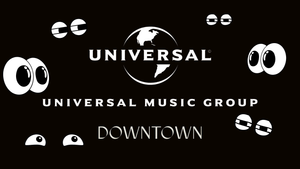President of the International Artists Organisation, Nacho García Vega, has shared a letter he’s sent to European Commissioner Valdis Dombrovskis in relation to the European Union’s ongoing investigation into Universal Music’s acquisition of Downtown Music.
He asks the EU regulator to consider the AI licensing deals Universal is now negotiating, as well as the major’s dominance in music streaming, when considering the impact the Downtown deal will have on the European music market. A combined Universal/Downtown, Vega concludes, would constitute “a giant step back” for “artistkind”, which is why he wants the EU regulator to block the deal.
The commercial opportunity presented by AI - bigged up by Universal CEO Lucian Grainge during his most recent investor call - is very relevant when considering the impact of the Downtown deal.
As CMU has previously explained, the data Universal will secure as part of the deal has much more value when considered in the context of AI. Plus the more market dominance Universal enjoys, the easier it is for the major to influence the way music AI business models evolve, to its own advantage.
In his letter, Vega notes that - as the EU has been investigating the Downtown acquisition - Universal has settled its big legal battle with music AI start-up Udio and licensed a new AI-powered music generation platform that Udio will now launch next year.
That Universal has managed to force Udio to the negotiating table, after the start-up previously argued it didn’t need licences from the music industry, “sounds impressive”, Vega admits.
But then he asks, “who will get their share of the settlement? Artists, distributed labels? And what of the new platform to be launched next year? Whose music will be used on that?”
The fact that big AI deals are now being done, with as little transparency as the deals the majors previously agreed with the streaming services, while “at the same time UMG is trying to clear its proposed acquisition of Downtown”, is very worrying indeed, the IAO chief explains.
“The music industry is not one homogenous unit”, he continues, “it is a complex ecosystem of creators, services and companies that are interdependent on each other to create a broad, varied and culturally diverse world of music for billions of people across the globe”.
One of the biggest concerns for artists, he says, is “the prevailing imbalance of power” within the music industry, “particularly when it comes to negotiating deals”. If Universal is allowed to acquire Downtown, “it will increase the imbalance significantly”.
Critics of the Downtown deal often note that Universal has already used its market dominance to pressure streaming services like Spotify and Amazon Music to change their business models in a way that primarily benefits big catalogue owners like Universal. That includes the introduction of the payment thresholds that freeze grassroots artists out of the royalty pool.
If Universal also owns Downtown, and with it FUGA, CD Baby, Songtrust and Curve, it will have even more dominance. “If I think about what might happen to payment thresholds on streaming services” with an even more powerful Universal, “I am sure to wake up in a cold sweat”, Vega says. And “that’s before we get into AI deals, how they will be structured and how preferences will work in that world”.
Downtown, he continues, is “a big company holding the keys to many services making an impact”, which makes it a new “major in the making”. Which is great if it’s an independent, but “not if it’s folded into the market leader”.
Which is why he concludes that “making UMG bigger would be a giant step back” for “artistkind”. To that end, he writes, “we look to Europe to take a stance and block the acquisition”.
The European Commission has until 6 Feb to reach a conclusion on whether or not to approve or block Universal’s Downtown deal, or to demand remedies to address any concerns raised by the acquisition.

